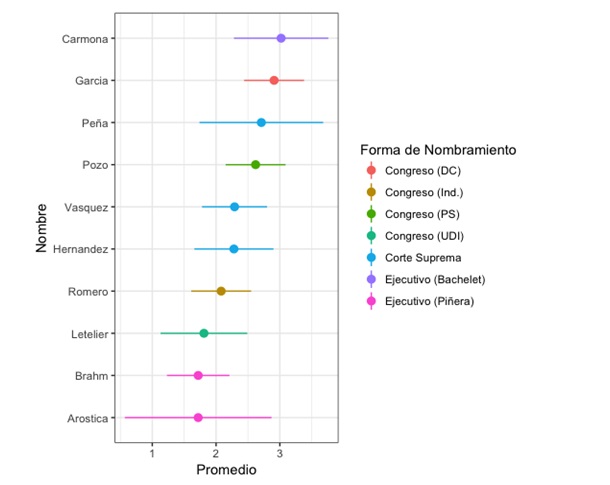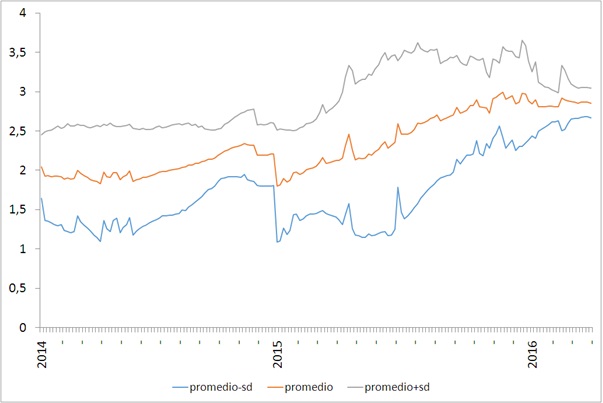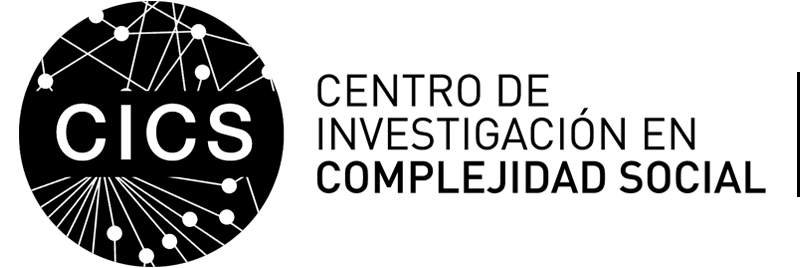#OpiniónCIPER: Predictions and successes of CICS researchers on the TC and the Abortion Bill
Monday, 21 August, 2017 | NEWSThis Monday the Constitutional Court (TC) rejected the unconstitutionality requirements presented by Chile Vamos against the bill that decriminalizes abortion in 3 cases. With 6 votes against 4 in each of the causes, the TC will keep intact the proposal promoted by the Government and approved by Congress after an extensive legislative process around the cases that represent the danger to the woman’s life, fetal non-viability and rape. Now, the bill has green light to be promulgated on August 28.

Gráfico 1: Estimación de las posiciones ideológicas promedio del Tribunal Constitucional, 2010-2016 (a mayor valor, más liberal la posición ideológica estimada)
Last Friday, CIPER published the analysis conducted by DCCS director, Jorge Fábrega, and the student and researcher Sammy Drobny on the behavior of TC members to predict their decision on the unconstitutionality of the Abortion Bill. With the result, they review those predictions.
Sammy Drobny, Class 2014 DCCS
“The result is almost fully consistent with the ideological estimates obtained for current TC members using the Expected Maximization IRT technique (Imai, Lo and Olmsted 2016). Ministers Arostica, Letelier and Romero – the most conservative members according to estimates and politically close to the right-wing opposition – welcomed the requirement of unconstitutionality (75%).
Although the fourth member to accept the ruling, Marisol Peña, is more liberal than his previous colleagues, she presents a high historical variability at the time of voting. Five of six ministers (80%) who rejected the requirement of unconstitutionality -Carmona, Garcia, Hernandez, Pozo and Vásquez- appear as liberal members in the ideological estimate made. And in the exceptional case of Maria Luisa Brahm (named after the previous government of Sebastián Piñera), her vote had tended in the last time to converge with her more liberal peers.
The Court, on the other hand, did accept the request about the statute of conscientious objection, accepting it by 8 votes against 2. By rejecting this chapter, only the two most liberal ministers were in accordance with the ideological estimate made: Carmona and García, both militants in parties of the Nueva Mayoría.
These results support the presumption that there is an inescapable ideological component in the voting of TC ministers and that the body acts as a third Political Chamber”.
Jorge Fábrega, Director of DCCS
“The decisions of a group of political actors depend on the preferences of the members of the group and the decision rules they have. The rules, in general, are easy to observe. But the same cannot be said of his preferences.
The Spatial Theory of Voting is a subdiscipline of political economy that allows empirically estimating the preferences of people based on their behavior and opinions. In the case of TC we extract the preferences from the votes of the ministers of the Court. The evolution of these preferences allows us to observe the effect of various changes such as the 2005 reform and changes of government, among others. And they also allow us to make predictions about how they will vote on projects with high political content.
In this case, the prediction was quite good, which leaves us optimistic about the lines of research we are doing in the TC study, but also in other instances. For example, we are currently working with similar techniques to study polarization in elites, voters, and public opinion.
These days we are honored to have John Londregan’s visit from Princeton University. He is one of the most notorious specialists in the Spatial Theory of Voting. John comes to share his latest research in which, along with watching polls, he analyzes the language and other variables that distinguish the ideology implicit in political actors. We are very excited about the various applications of these models to understand political activity. ”

Gráfico 2: Evolución de las posiciones ideológicas del actual Tribunal Constitucional 2014-2016 (a mayor valor, más liberal la posición ideológica estimada)


